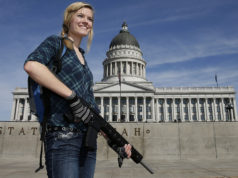From alcohol companies to pharmaceutical conglomerates, and police unions, there are a whole lot people hurt by the legalization of cannabis.
In this era of political polarization, when Americans seem to agree on absolutely nothing, let me reassure you. We overwhelmingly agree that cannabis should be legal.
1 in 5 Americans have (state) legal access, 1 in 2 have experimented with it, and more than 1 in 10 smoke regularly. Southern California yuppies are publicly winning prizes for growing the same plant that landed Georgia teenagers in prison.
Half of states allow at least limited use, and a few attract elite cannabis tourism. Federally, the drug remains fiercely criminalized, despite irrefutable evidence of its medical value.
So what’s the hold-up?
Being in the anti-marijuana business is astonishingly lucrative for bureaucrats and campaign donors. Here are just a few of the heavy hitters addicted to federal prohibition:
Big Booze:
National Beer Wholesalers Association
Wine & Spirits Wholesalers of America
The makers and distributors of America’s top-selling beers, wines, and liquors are already facing stiff competition from newly deregulated microbrewers and craft distilleries.
Cannabis prohibition shuts out a zero-calorie competitor with far fewer short- and long-term health risks. The industry donated (read: invested) $19 million to re-election campaigns in 2016, and another $4 million to soft money groups like “Public Safety First” which specifically oppose cannabis legalization efforts. The efforts here are well documented.
Cannabis legalization does reduce alcohol sales, and its regular use reduces alcoholism and alcohol-related deaths. Each year 37,000 deaths in the US are attributed to alcohol, compared to zero deaths from cannabis use, ever. Brewers and distillers are eager to point “public health and safety” attention in another direction.
The Boys in Blue:
National Fraternal Order of Police
National Association of Police Organizations
American Federation of State, County and Municipal Employees
The nation’s policy means guaranteed revenue, low-risk, peaceful “offenders” to fill arrest quotas, and easy excuses to search or detain citizens.
Local law enforcement has become highly dependent on federal and state money devoted to the War on Drugs. Civil asset forfeiture – a legacy of the 1984 drug war omnibus crime bill – allows local police departments to keep 80 percent of property seized in suspected (not proven) drug activity. Local cops regularly auction off homes and cars connected with small marijuana sales, pocketing the proceeds without convicting anyone of any crime. Drug raids “were no longer just about putting on a good show and terrorizing the counterculture. Now the raids could generate revenue for all of the police agencies involved.” (Randy Balko, Rise Of The Warrior Cop). Property stolen from innocent Americans (the Washington Post found 80 percent of victims of asset forfeiture were never even charged) has paid for military-grade equipment and SWAT teams used in still-more-terrifying drug raids for profit.
National Fraternal Order of Police, National Association of Police Organizations, Federal Law Enforcement Officers Association, and literally dozens of smaller interest groups and political action committees represent the interests of law enforcement officers. Drug testing laboratories, prosecutors, drug court lawyers and judges, rehab centers, counselors, and other unionized social services also depend on marijuana arrests to keep numbers up.
For them, the nation’s outdated marijuana policy means guaranteed revenue, low-risk, peaceful “offenders” to fill arrest quotas, and easy excuses to search or detain citizens.
Read more







